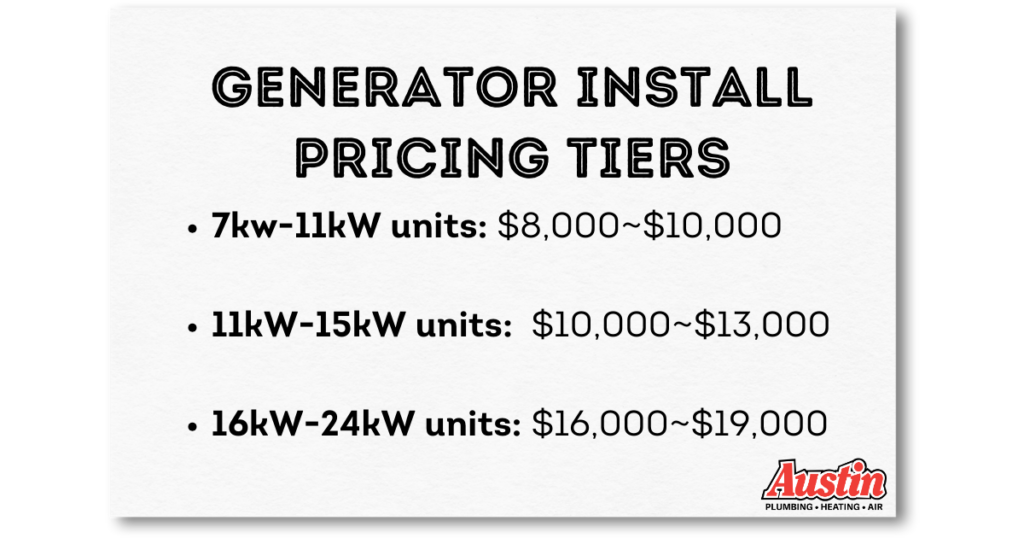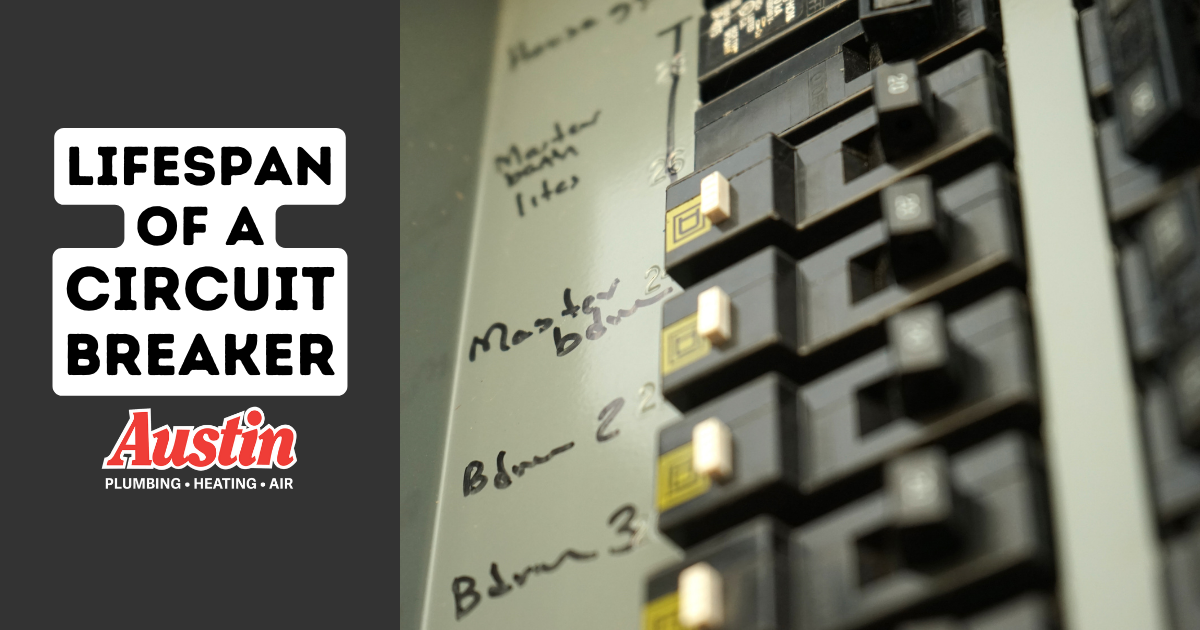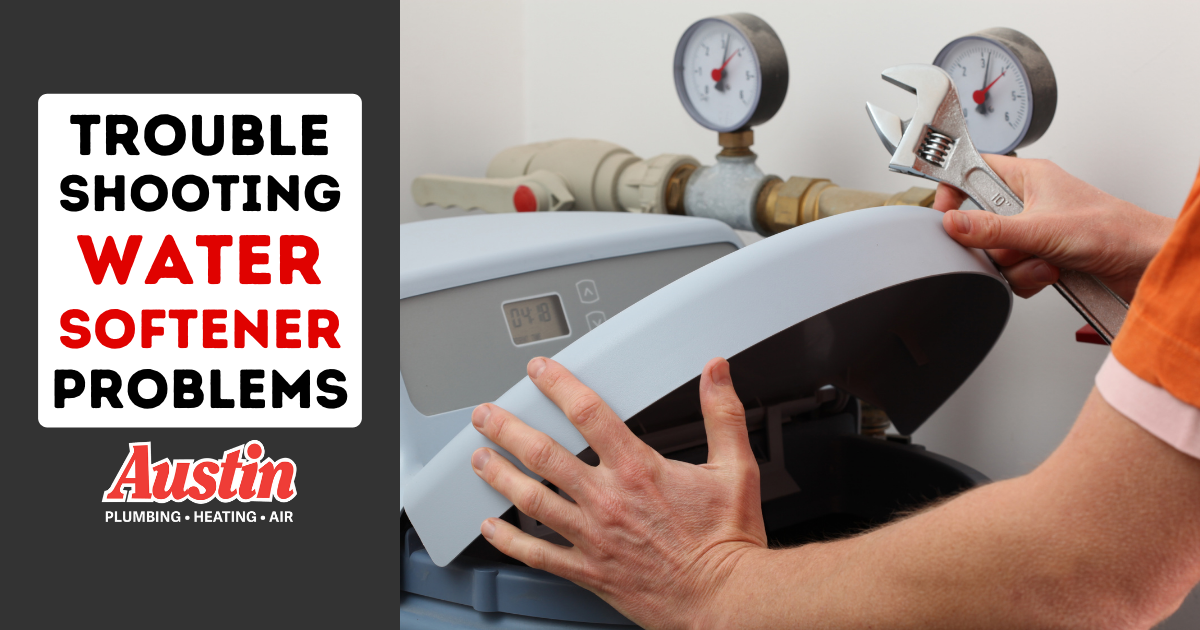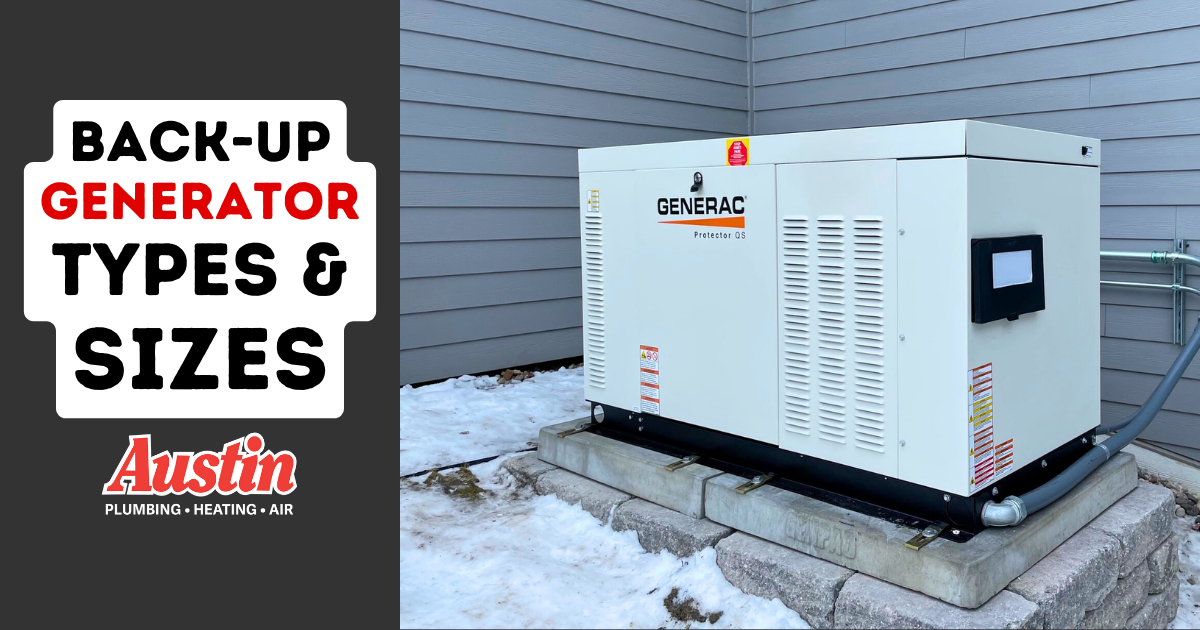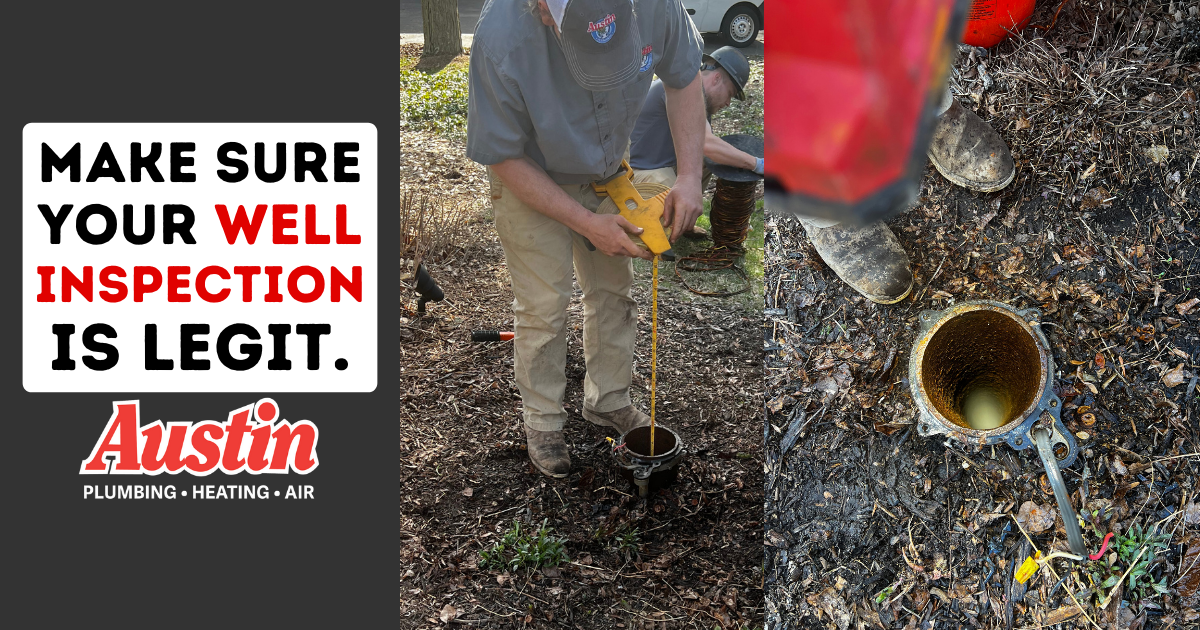The Actual Cost to Install an Automatic Whole-House Generator
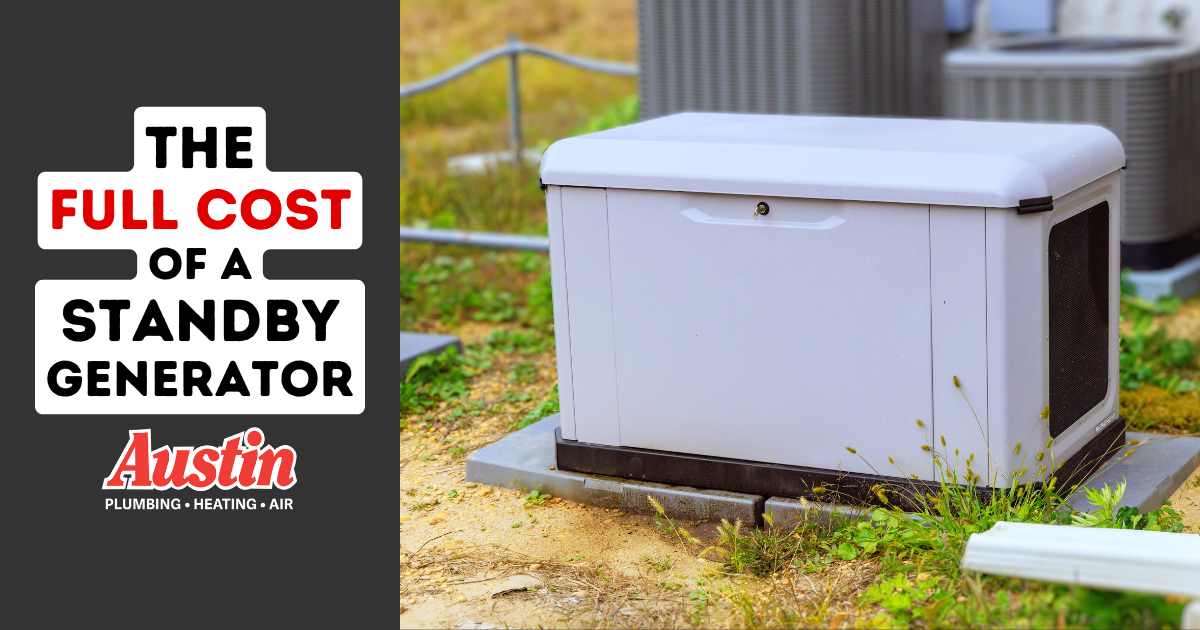
Our Master Tradesman takes on the number-one question customers ask about emergency generators: “How much does a whole-home generator cost?”
On average, the cost for a whole-home standby generator installation is between $800-$1,000 per kilowatt of power.
There is no significant difference in installation costs between a small whole-home generator and a large whole-home generator. The only real difference lies in the cost of the equipment and the extra circuitry required of larger units.
Now, the most common response we get when clients find out the true total cost of a high-quality generator with proper installation is:
I had no idea they cost that much!
Meanwhile, the comment we hear the most after completing a whole home generator installation is:
That took way more work than I thought it would!
So what does it take to get a generator installed the right way? And what materials factor into the final invoice? Read below to find out.
Whole-Home Generator Cost Factors
Installing a whole-home generator is a major project. Like most major projects, it requires a significant investment of money on your part; plus time, materials, and labor on ours. And it’s completely worth it!
Here are some of the major factors that determine what you can expect to pay to have your generator installed.
Equipment Alone: $4,000–$7,000 + Tax & Delivery
The two main manufacturers of standby generators, Generac and Kohler, sell whole-home generators 1) directly to the public, and 2) directly to electrical contractors (like Austin Plumbing, Heating, Air & Electric 🙂). For that reason, they publish the cost of each unit they make on their respective websites. Customers tend to prefer Generac, whose pricing is found here.
The price you pay for a generator direct-from-manufacturer or retailer is the same price electrical contractors pay for the equipment.
Unlike with other household equipment and appliances, you as the homeowner have access to generators at the same cost as your electrical contractor–which is why we won’t go into excessive detail about equipment prices and markups here. Whether you buy from us or a generator dealer, any extra cost to you will be for the sake of covering carrying costs, delivery, and other incidental expenses associated with providing the equipment.
- Additional equipment: for Wisconsin residents purchasing a generator, we typically recommend two upgrades because of the cold weather: a battery heater and an oil pan heater.
Professional Installation Cost: $3,000–$6,000
The largest variable in the total cost of a whole-house generator lies here, in the work of installing it. This is skilled labor in which our technicians have been studiously trained to do it right!
Placement of the generator: $500–$1000
Where the generator will go contributes massively to determining the final cost of the installation. It’s also at the center of many adjacent decisions surrounding the entire project.
To keep install costs as low as possible, pick a flat place as close to the gas meter as possible.
During the placement of the generator, a stone pad is formed using crushed gravel to ensure a level and stable base. Then, a pre-cast plastic pad designed specifically for generators is placed atop the stone base. Finally, this composite foundation is ready for the generator to go on top of it.
Additional placement considerations:
- Cost of the gas pipe installation
- Cost of running the main power from the generator to the transfer switch in the home
- Noise factor when running (size of unit combined with location in home)
- Cost to build a level pad for unit to rest on
- The incredible weight of the thing!
Generators weigh over 500lbs and require 3-4 people, or the use of specialized equipment and carts, to move.
As you can see, the destination of your new generator has a lot to do with the cost of installing it–which makes upfront pricing somewhat difficult to provide. If you’re in Southeast Wisconsin, the best way to get an exact, to-the-penny price on a generator installation is to ask Team Austin to sent one of our Home Solutions Coordinators out for a comprehensive quote.
Gas Piping: $650–$2,500
Whole-home standby generators in Wisconsin are typically fueled by natural gas. Even though most of our service areas get their natural gas from WE Energies (the same company who provides power to most homes and businesses in our service area), remember that the flow of natural gas is not dependent on the electricity grid. This is why natural gas-powered emergency generators are the best, most reliable choice for Wisconsin homeowners.
Of course, piping the gas to the generator does incur a certain cost.
If the generator is placed near the gas meter (within 10’) and the meter is properly sized, the cost of piping should account for roughly $1,000 of the total install cost.
What’s involved during gas piping installation? The gas supply for the generator is tapped into the main gas pipe at or near the meter and then piped with a hard gas pipe to the generator location. The gas pipe is secured to the home for safety reasons. Also note the following:
- To accommodate larger generators, sometimes a new gas meter is required. If this is the case, don’t stress. Team Austin will help you coordinate next steps.
- Gas pipes must be custom-cut to fit the application.
- It’s critical that the gas system is designed properly (not only for the generator, but also for the sake of your other home appliances–furnace, water heater, stoves, etc.).
Indoor Electrical Work: $2,500–$3,500
The main power supply from the generator to the home’s electrical panel must be piped in conduit on the exterior of the home and run back to the transfer switch, which gets mounted next to the circuit breaker panel.
The inside electrical component of a generator installation in Wisconsin can easily account for $2,500-$3,500 of the final quote.
Once inside the home, state and federal codes determine the method necessary for connecting the heavy cabling back to the transfer switch inside the house. The backed-up circuits are wired to the standby transfer switch, grounds are separated, and a new ground wire is installed to connect to the water supply.
What else is involved in the wiring process?
- Distance from generator to main electrical panel
- Distance from electrical panel back to incoming water source
- Current condition of electrical panel, grounding and other wiring
- Number of circuits being being operated by the standby generator
How long does a generator installation usually take?
People tend to be shocked at the sheer amount of time and hard work that goes into installing a backup generator. This kind of project absolutely has to start with proper design and testing, or else it’s headed for disaster.
All in all, it takes us:
- A team of 3-4 tradesmen at minimum
- Around 27 hours of manpower total
- Onsite, another 9 hours (or one full business day) to complete the job.
For Team Austin, a typical generator install looks like this.
Here are the high level steps of generator installation–with all the overwhelming nuances conveniently left aside for the sake of your brain and eyeballs.
- Generator sizing and design
- Delivery
- Placement, prep & pad
- Setting the unit
- Gas piping
- Outdoor electrical work
- Generator-to-panel wiring
- Installation of transfer switch
- Rewiring backed-up circuits
- Installing new electrical ground system
- Generator commissioning
- System training
But really, hundreds of intermediate steps are involved, and listing them all here would result in a never-ending guide. Your great grandchildren would graduate college before you ever get yourself a generator.
Get a Quote on Your Generator Install
Want to go over the installation process with a professional and get a no-pressure estimate for your generator? Feel free to book an onsite visit with one of our generator experts, or call 262-367-3808 today. We look forward to seeing you!
